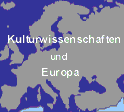
 |
Cultural Studies, European Policies, Civil Societies |
|
The role of politics in today's society is usually reported in a very schematic way in the European media. There appears to be only two models for political negotiation: more state involvement or less state involvement.
Media reporting on politics is also far removed from the concerns of everyday life. Political activity appears to be limited to parties and communal and state organisations. One seldom observes a political mentality geared to shared development of the life of our societies.
In reality, though, the political arena, broadly speaking, has expanded greatly in Europe. Most importantly, regulations governing private life are being increasingly withdrawn. The autonomy granted by new work structures could have wide-ranging consequences in many areas in future. Opportunities available to the mass media are not as unlimited as has sometimes appreared to be the case.
Strictly speaking, however, the potential of politics is in no sense adequate to processes underway today. Everyday life is more and more profoundly subject to the influence of global processes. However, it is true that it is primarily economic structures which are developing - in Europe, in southern Africa, in America, in Asia, without including all relevant countries. And this is not to mention democratic participation in decision making which would enable democratic elections to influence transnational economic processes.
It is precisely in connection with social questions that unease, a mood of protest and destructive processes can appear. In comparison, elements of a transnational civil society are still only partially developed.
Cultural studies, broadly speaking, have reacted to such developments only marginally. Of course opportunities are given to spend time in other countries and there's a whole range of international scientific organisations. Transnational scientific cooperation is only just in the making, however. And an international science community is an ideal whose underlying principles are established, but which is expressed in only very limited ways. Even the infrastructural basis (using modern technologies such as Internet) is only in the beginning stages and is usually limited to the modern form of letter writing, or presentation and advertisement in the Internet. Much still needs to be done to ensure cultural studies can adequately address the new opportunities. Its role as custodian (of Internet documents as well, to guarantee a basis for debate), its potential to steer discussion along the lines of rational exchange, to assist social processes scientifically, to contribute to conceptual development in relation to shaping future processes, still has to be thoroughly worked through.
But there is also a need in Europe for policies capable of creating
the right circumstances, which enable the acquisition of the necessary
equipment and software, which enable transdisciplinary and transcultural
research (and thereby support the transformation of the humanities into
cultural studies.) Assuming the questions cultural studies would focus
on would be of great social relevance, it would also be useful, in creating
appropriate circumstances, to allow science in the foreseeable future to
administer and distribute funding itself. Scholars in Europe, (as is already
the case with state-financed research support funds), should decide themselves,
on the basis of "Our Creative Diversity", what methods they should work
with, what form scientific organisations should take, etc. Policies which
continue to support fragmentation, "national" limits on scholarship etc.,
or - as another variant - simply evade their responsibilities to society
by placing research purely at the service of the "market", have failed.
They either prolong the crisis or condemn themselves to irrelevance. In
the current period of upheaval, both approaches are unproductive and endanger
the European project.
|
|
|
|
|
|
|